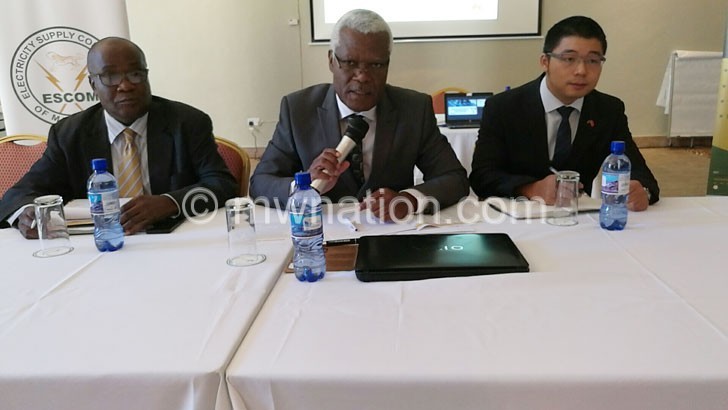Escom announces more blackouts
The Electricity Supply Corporation of Malawi (Escom) yesterday said consumers should expect power rationing, especially in areas where the corporation will be working on the $23 million (about K16.9 billion) Malawi National Fiber Backbone Project.
Escom head of optic fiber communications Chester Kabinda told a news conference in Blantyre, implementation of the six-month project, scheduled to start this Sunday, will require switching off of the areas affected to pave way for the works.

He said: “During this implementation period, only those areas that we are stringing the fiber will switch off maybe two to three times a week depending on the project phase. But at some point in time, each district will be affected.
“However, the blackouts will be minimised because it will be in an area at a time starting with Mapanga to Chiradzulu and then Zomba to Liwonde as learning curves.”
Kabinda said government wanted reliability, hence engaged Escom to run the fiber on its network to counter vandalism.
The development is coming at a time when last month, Electricity Generation Company Limited (Egenco) asked Malawians to expect more power load shedding this year due to low water levels in Lake Malawi and its sole outlet, Shire River.
Egenco Kapichira Hydro Power Station manager Harry Msosa is on record as having said that for almost a year, the company was releasing about 130 cubic millimeters of water per second instead of the 280 cubic millimeters per second needed to have adequate generation.
He said electricity production was down to between 200 and 260 megawatts against total capacity of 351 megawatts of hydro power.
Deputy director in the department of e-government in the Ministry of Information and Communications Technology, Victor Malewa, said the implementation of the fiber project will help the country improve its standing as a nation in terms of people’s access to broadband and Internet.
He also said this will help improve government operations through systems such as the Integrated Financial Management and Information System (Ifmis), Human Resource Management Information System (HRMIS), Immigration and National Registraion and Identification System which will be connected through the project.
Huawei Technologies chief technical officer Bruce Ding said the company, which plans to employ over 300 people in the course of the project, was upbeat that with enough competence, it will finish the project come December.
On April 26 2017, President Peter Mutharika expressed optimism that the Malawi National Fiber Backbone Project will improve the social, political and economic development of the country.
The project will involve the installation of communication equipment from Chitipa to Nsanje to enable and improve mobile phone and Internet connectivity.





